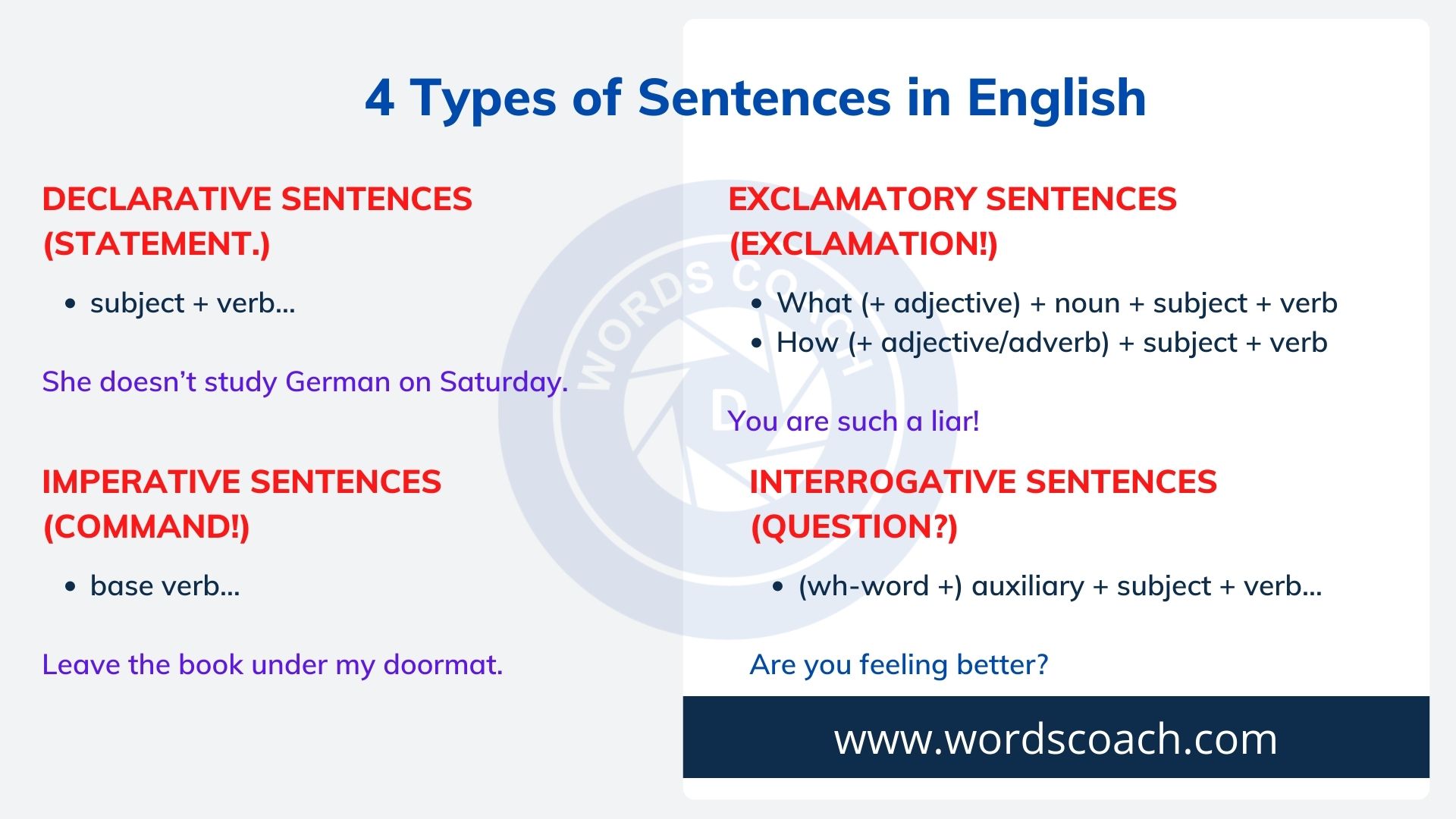There are four types of English sentences, classified by their purpose:
1. Declarative Sentences (statement.)
2. Exclamatory Sentences (exclamation!)
3. Imperative Sentences (command!)
4. Interrogative Sentences (question?)
1. Declarative Sentences (statement.)
The declarative sentence that makes a statement, provides a fact, offers an explanation, or conveys information. They tell us something. They give us information, and they normally end with a full-stop/period.
Declarative sentences can be positive or negative.
The usual word order for the declarative sentence is:
subject + verb…
Examples:
- She doesn’t study German on Saturday.
- We watched TV last night.
- We did not watch TV last night.
- I do not like coffee.
- George brushes her teeth twice a day.
2. Exclamatory Sentences (exclamation!)
Exclamative sentences express strong emotion/surprise an exclamation and they always end with an exclamation mark/point (!).
The usual word order for the exclamative sentence is:
What (+ adjective) + noun + subject + verb
How (+ adjective/adverb) + subject + verb
Examples:
- You are such a liar!
- What an exciting movie it was!
- He is such a kind person!
- How he lied!
- But don’t forget what I said!
3. Imperative Sentences (command!)
Imperative sentences give a command. They tell us to do something, and they end with a full-stop/period (.) or exclamation mark/point(!).
The usual word order for the imperative sentence is:
base verb…
Note:- that there is usually no subject—because the subject is understood, it is YOU.
Imperative sentences can be positive or negative.
Examples:
- Leave the book under my doormat.
- Don’t give her coffee.
- Play with intensity and courage.
- Turn left at that intersection.
- Please open with care.
4. Interrogative Sentences (question?)
Interrogative sentences ask a question. They ask us something. They want information, and they always end with a question mark.
The usual word order for the interrogative sentence is:
(wh-word +) auxiliary + subject + verb…
There are three basic question types and they are all interrogative sentences:
- Yes/No question: the answer is “yes or no”, for example:
Do you want dinner? (No thank you.) - Question-word (WH) question: the answer is “information”, for example:
Where do you live? (In Paris.) - Choice question: the answer is “in the question”, for example:
Do you want tea or coffee? (Tea please.)
Examples:
- Are you feeling better?
- What do you believe?
- What sort of nation might you want to live in?
Read More about Interrogative Sentences: Click here.

